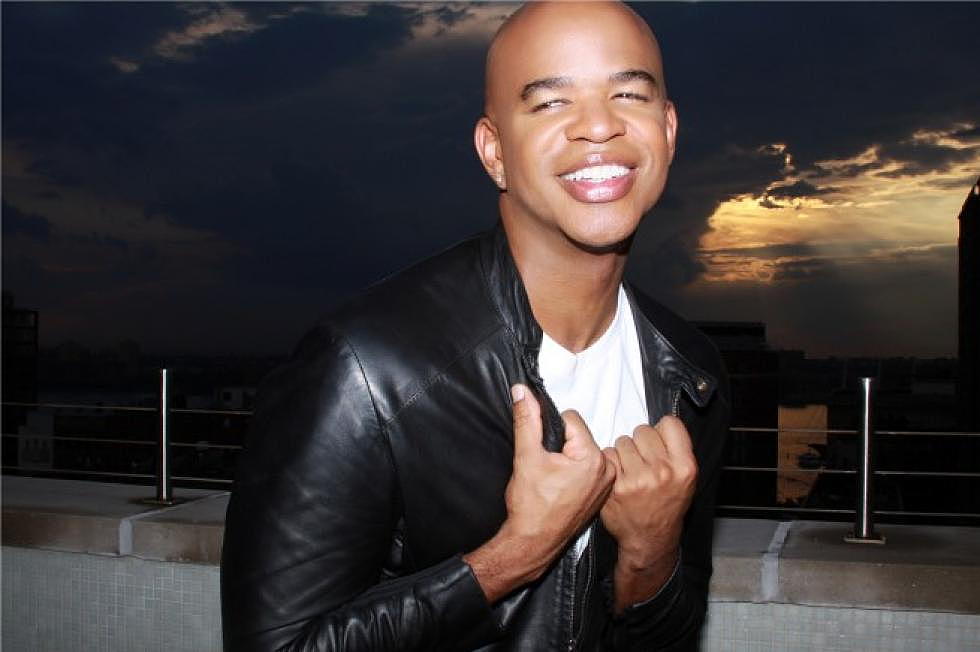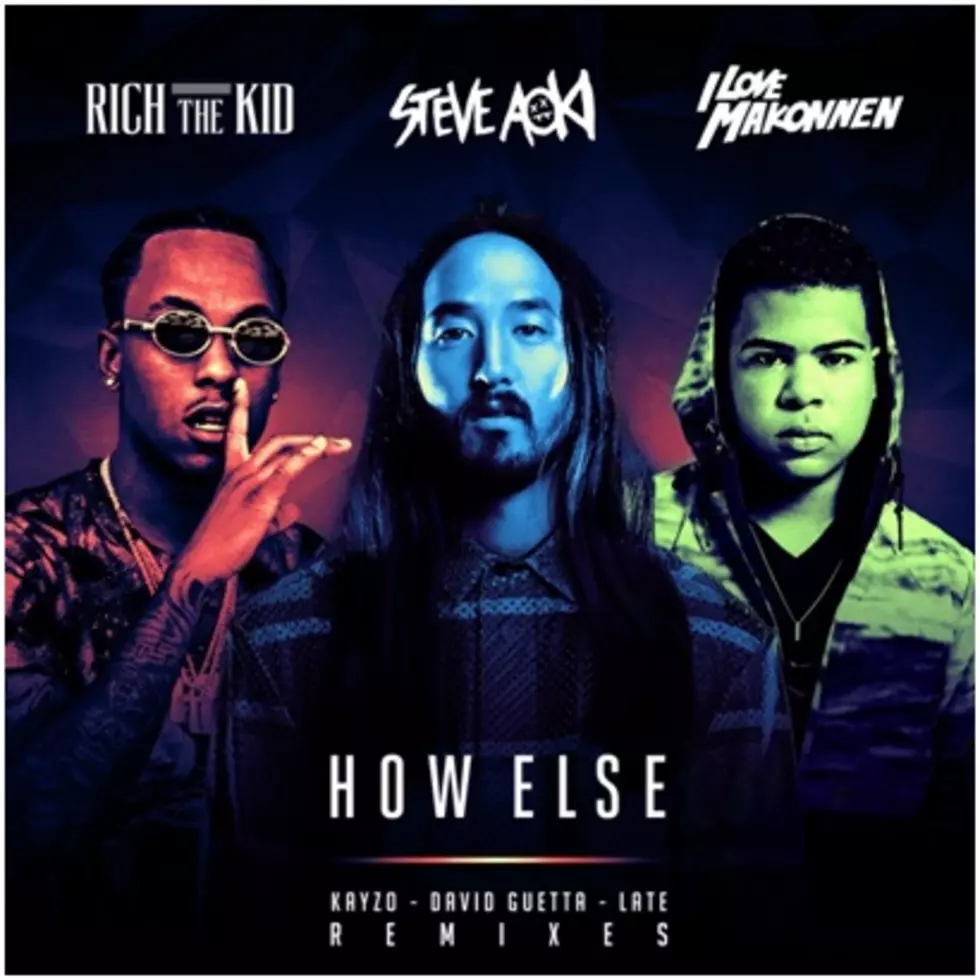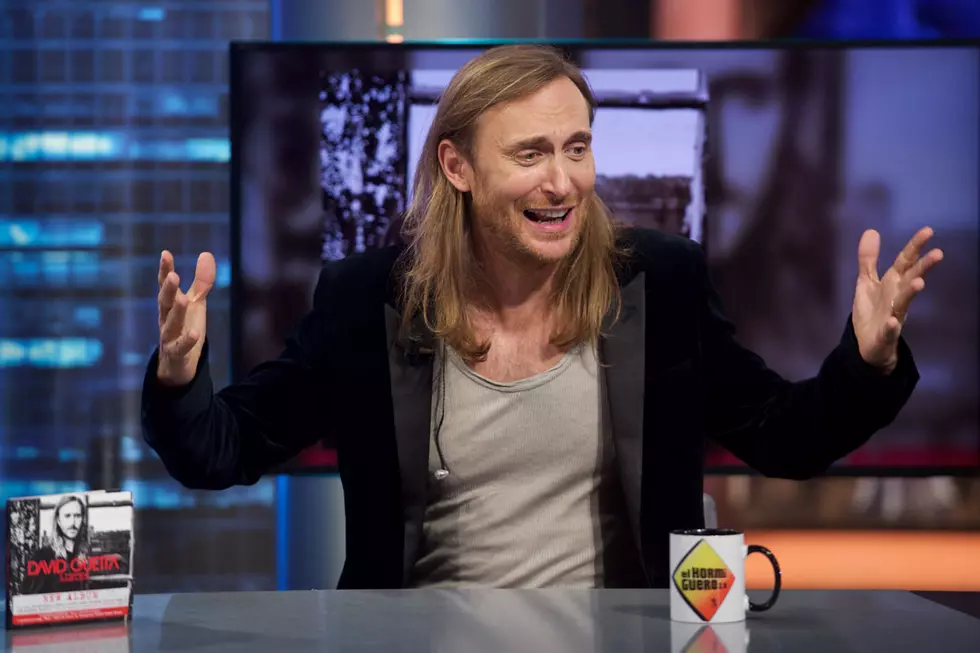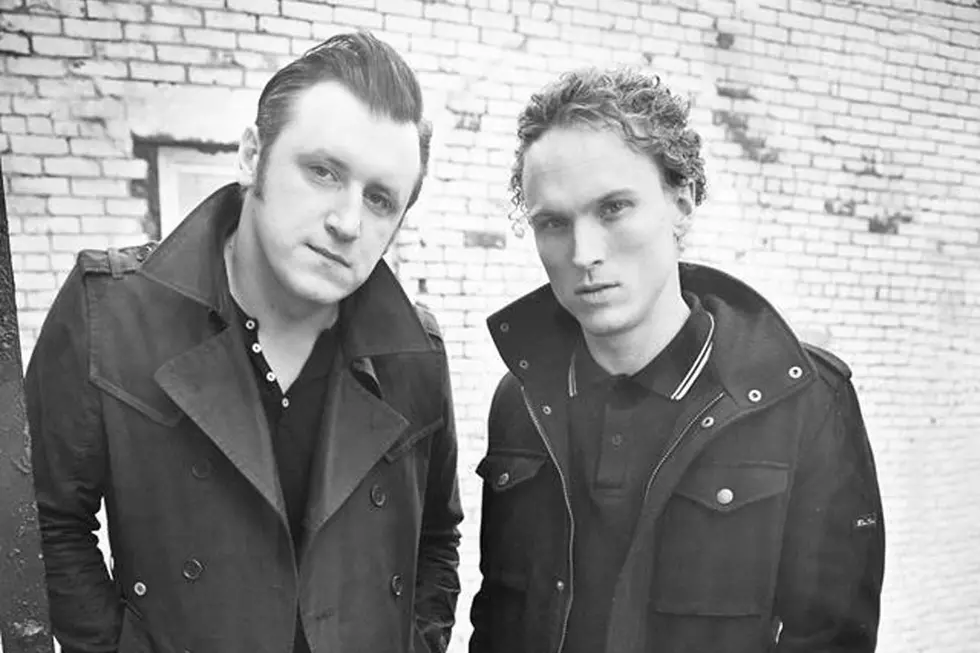
Elektro Exclusive Interview With Chris Willis: Gospel, Guetta and Beyond
Chris Willis is the vocalist behind some of current elektro cover star David Guetta's biggest hits, starting with his very first single "Just A Little More Love." Willis met Guetta by chance after deciding to leave the gospel music world behind, and nothing has been the same since. The soulful singer is now embarking on his own solo dance career with infectious tracks like "Louder" and the Lenny Kravitz-sampling "Too Much In Love." In his characteristically thoughtful and eloquent manner, Willis told us about his amazing journey from Nashville to Paris to... well, everywhere.
elektro: Let’s start at the beginning. You started in gospel, made your mark and then David found you. How did it all happen?
Willis: I was doing gospel and really dissatisfied with where I was going in the market. So I decided to leave and pursue other interests. All along I’ve been interested in urban pop music and mainstream music and decided to kind of try my hand in the background as a songwriter. And doing so much background work in Nashville, I was introduced to Desmond Child. I began doing backup with him, and that turned into him inviting me to produce a band from France called 2B3. And while doing some publicity for that album, when we finished it in France, we went out to eat at a restaurant that David and his wife Kathy were running and I was introduced to David. He invited me to come by the studio the next day and vibe and see if we vibed. And the first song we wrote [“Just A Little More Love”] ended up being the first big song for me in France.
elektro: And it just took off from there?
Willis: Yes. So, then I was commuting back and forth [between Paris and Nashville] and wrote many other songs, “Stay" and “Time,” recorded “Money” that was written by some other artist David knew. Appearances on multiple albums, Just a Little More Love was the first album. Guetta Blaster was the second album. Then Pop Life and then One Love. We had one record on that one, which was the Fergie/LMFAO “Gettin’ Over” record that really, really took everybody by surprise and one of my first big appearances on video. It launched, positioned him, in a major way.
elektro: Was it the success of that song that made you David was going to be a star in the States?
Willis: It was incredible. I mean, all the songs up until that point were great. A great foundation was built and we had a really strong collaboration vibe. But this record, we involved Fergie and LMFAO, because there’s also an original version with just me as a solo. But once we added those two key ingredients, which David by that time had been working with Kelly Roland and Usher and moving around in America with all the big stars. And [Fergie and LMFAO] were the “X” factor that took the song way beyond imaginable. That is definitely a tribute to David’s genius, if I may add, of really putting unusual elements together.
elektro: And you have the unusual combination of a gospel background with more R&B-inspired songwriting.
Willis: I was so accustomed to writing songs that were very gospel-centric. And this was an opportunity for me to use that gospel energy, but to write songs that were socially conscious, that were relationship conscious. And, honestly, many times when I was in the studio in France writing, my focus was really about, “Okay, what happens when these songs hit American soil?” I wanted the lyrics to really be clear and cool and clever but understandable, reminiscent of all the greatest pop songs that I’ve always loved.
elektro: And what did you learn from being in the studio with David?
Willis: [At first] it was really about him having a good sense of what would go over well in a club or what would go over well where people aren’t necessarily speaking English as a primary language. For instance, “Just a Little More Love” is just a chorus. There’s no verse. There’s no bridge. It’s just a chorus that repeats. And there’s just enough lyric for you to jump on. Because sometimes a full record doesn’t work in a club.
It was just unusual because I’m coming from gospel and pop and was just accustomed to having your verse and you build up to your chorus and then you take the audience down with the B section and back up to the chorus. And sometimes you need that hook and you need that dance break where people aren’t hearing the lyrics. They’re not hearing the melody. They’re lost in the beat. They’re captured by the rhythm and the vibe created there. It kind of reminds me, if I may be so bold, of when I grew up in the church, everyone singing along. And I always try to bring that same kind of sensibility to electronic music. And if it can happen in church where everyone is singing along, why can it not happen with a song that has mass appeal and can play on every station around the world? I mean, it’s kind of like that choral experience you get in church, but it’s a worldwide chorus.
A song is a song is a song. The song can transcend genre, can transcend language and country and territory and culture. And when you have a record that does that, that’s when you have a foundation of a mega hit. And to his credit, he’s been able to do that multiple times. And that’s a very unusual precedent to achieve.
elektro: What’s your take on Nothing But The Beat and all of his crossover success?
Willis: You know, David was really interested in merging and converging. And I remember him talking about, even before he started collaborating with the big urban stars, his passion for R&B. So I think it was always there. It was just a matter of time before he was able to use his name and cache to invite these artists who were really intrigued about this new sound and this new style, and the convergence of that I think is again a tribute to his genius to be the first to be successful at it. And David can be given the credit for taking that kind of cross genre interpolation that is now becoming the norm.
elektro: And now, venturing off as a solo artist, how are you trying to differentiate sort of your own work from the music you did with David?
Willis: It’s not something I spend sleepless nights thinking about, but it definitely is a challenge to shake. Once you become successful in one area, you’ll be forever compared with that for as long as you live. And I’m up to the challenge. I love the business. I love the industry. I’ve been in this business for many, many years. And I love the thought that this happened in this forum. Let’s turn this around and see if we can investigate and discover a new pathway. And thankfully “Louder,” which is my first solo number one on the Billboard dance chart, was definitely a sign that it’s possible. I don’t mind the challenge. I’ve been bouncing around being challenged as an artist for my whole life. And I think I’m accepting and embracing that’s pretty much the way it’s going to be. And if I’m able to come up with something that has that mass appeal where that lightening strikes again and again, awesome.
elektro: What’s your plan going forward?
Willis: I’m so fascinated with Internet marketing and the media outlets. You really have an opportunity market yourself and create a brand that goes right from your heart, from your studio, right into the homes. We’ve had a really great opportunity to create a label called Veneer Records. And we’ve partnered with this label with several outlets around the world. I have my own connection for distribution on iTunes.
So, I’m looking to explore this vehicle even more. I’m really enjoying playing this game in a new way. I love writing songs. I love collaboration. I have several records coming out. One with Nicola Fasano is already out, “DJ Rock Superstar.” I have another record I’m launching with Joachim Garraud called “One Life,” which I think is going to be an anthemic crowd-pleaser. I have another record out with Wango Martin in Spain called “Notice Me”. I’m preparing to release another record with Trevor Simpson out of San Francisco. And there’s some really great other collaborations that I’m hoping to partner with my label and other artists, develop more artists.
There’s just a whole world of music to explore. And thankfully electronic music has just been an incredible catalyst to introduce me to the world. And I will continue to put out any strong electronic anthems as the market can bear and to explore the world and travel the world and put out as much music as there is a market to listen to it.
More From Elektro Daily









